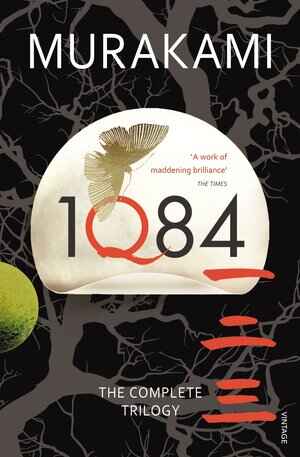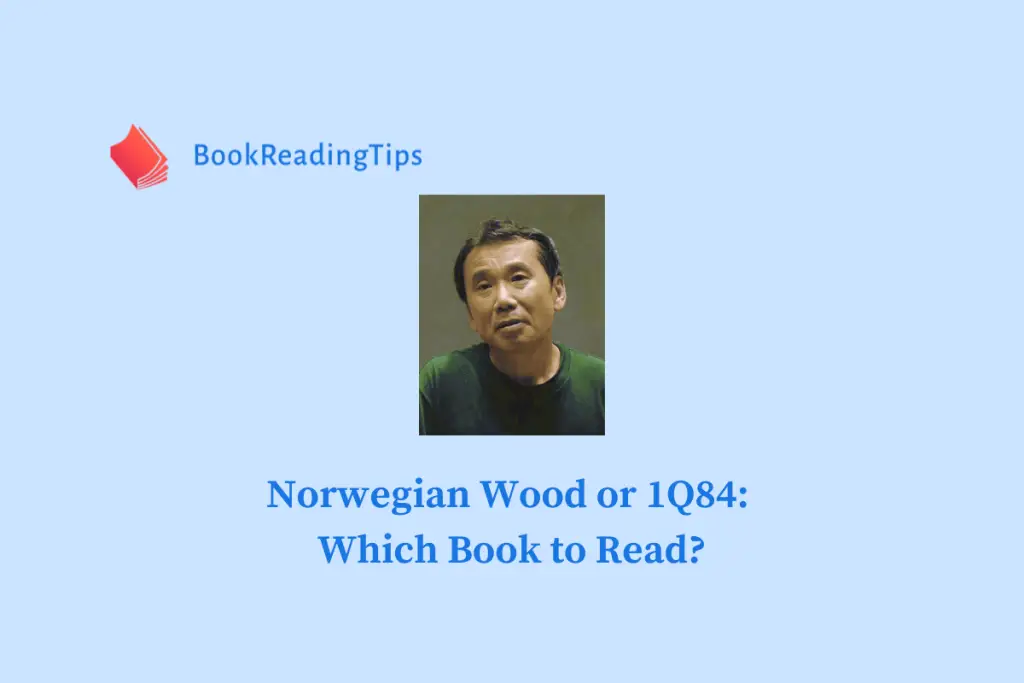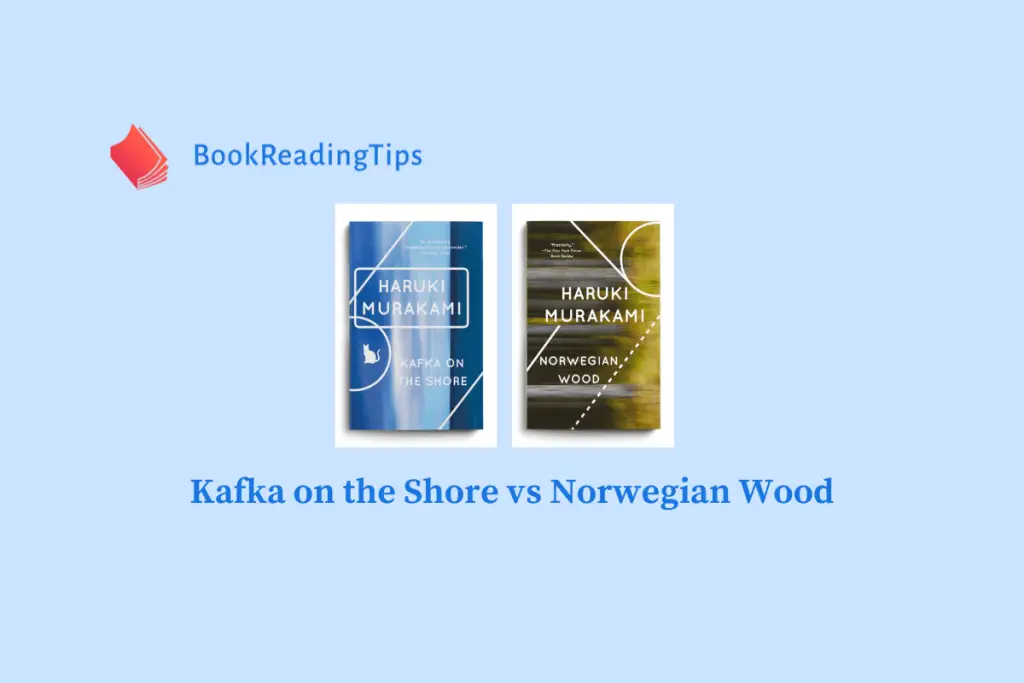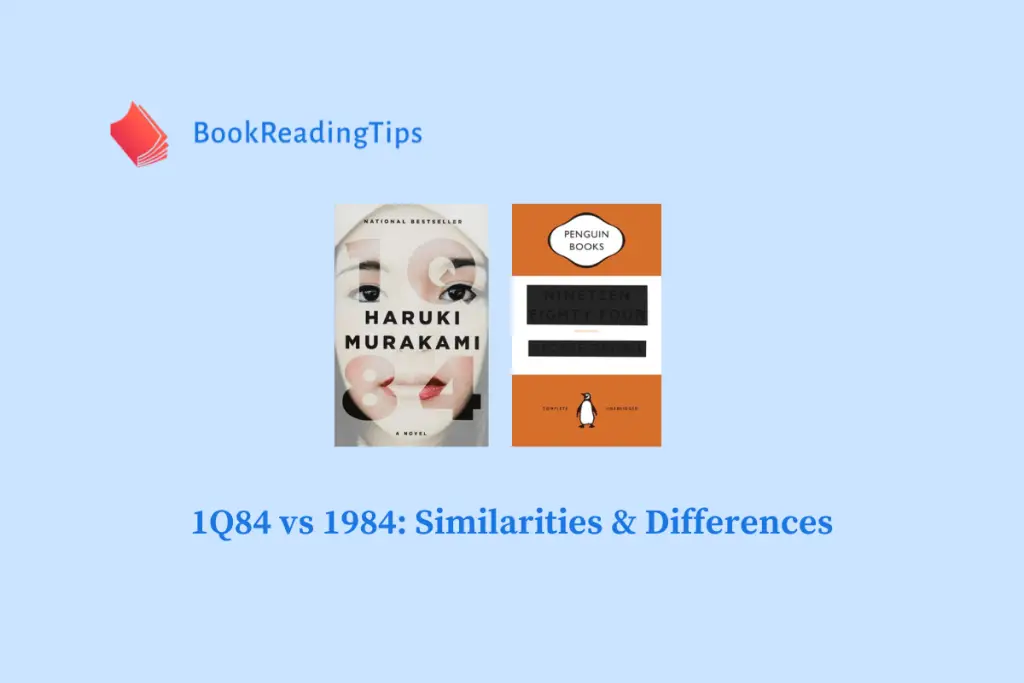The world of 1Q84 is nothing short of a masterpiece created by the renowned author, Haruki Murakami. As a reader, you may find yourself questioning whether this novel is a depressing read or not. With its intricate plot, intersecting storylines, and deeply nuanced characters, 1Q84 is a beautifully crafted piece of literature that transports you into an alternate reality where the lines between fantasy and reality blur.
1Q84 is not sad or depressing. The book is Murakami’s longest novel and it delves into themes such as love, loneliness, and the complex nature of human relationships. It evokes deep emotions and perhaps even some melancholy. But also, Murakami’s signature magical realism and skillful world-building counterbalances the darker aspects, leaving you with a sense of wonder and curiosity.
As you progress through the novel, it’s crucial to approach it with an open mind and appreciate the layers of meaning that unfold with each turn of the page.
Table of Contents
- Overview of Murakami’s 1Q84
- Is 1Q84 a Depressing Read?
- Major Themes in 1Q84
- Comparison with Other Murakami Novels
- 1Q84 Publication and Reviews
- Conclusion: Read 1Q84 or Not?
Overview of Murakami’s 1Q84

Plot Overview
In 1Q84, you follow the interconnecting stories of two main characters, Aomame and Tengo, as they navigate a mysterious alternate reality. The year is 1984, but with the existence of two moons in the sky, they soon realize they’ve entered a parallel world dubbed “1Q84” by Aomame. In this world, a cult led by the “Little People” holds a sinister influence on people’s lives. You witness their individual journeys and gradual convergence as they start to uncover the truth about this strange reality.
Main Characters
- Aomame: A fitness instructor and assassin, Aomame is a resourceful and independent woman. In 1Q84, she discovers her mission to take down corrupt and abusive figures in society is tied to the influence of the Little People.
- Tengo: A math teacher and aspiring novelist, Tengo becomes entangled in the web of 1Q84 when he’s tasked with rewriting a peculiar manuscript called “Air Chrysalis.” As he digs deeper, he finds out his fate is intertwined with Aomame and the Little People.
As you explore the world of 1Q84, you will encounter the mysteries surrounding the Little People and the significance of the two moons. The parallel reality, along with the characters’ personal struggles, evokes a sense of wonder and melancholy throughout the novel.
Is 1Q84 a Depressing Read?
Analysis of Mood and Tone
1Q84 is a work of fiction by Haruki Murakami. The mood and tone of the book are essential in determining whether the reading experience can come off as depressing or not. While some aspects of 1Q84 might evoke feelings of melancholy, it is important to remember that the book explores various themes such as love, escapism, and self-discovery. The tone can be intense and thought-provoking at times, but this adds to the overall depth of the narrative.

1Q84 Readers’ Opinions
Goodreads is a great source for gauging 1Q84 readers’ opinions on the book. Upon inspecting various book reviews, you will find mixed reactions toward the perceived levels of “depressing” content. Some readers find the book to be more thought-provoking and engaging rather than depressing. In contrast, others express disappointment over the slow pace and intricate plot details. As with any of Murakami’s work, it’s essential to approach it with an open mind and understand that individual reactions to the story can widely vary.
Major Themes in 1Q84
Love and Yearning
In 1Q84, you will come across the theme of love and yearning that plays a significant role in driving the plot. The protagonists, Tengo and Aomame, share an intense longing for each other, which transcends time and space. Their quest to reunite defines their actions and shapes their individual journeys. Love in this novel is powerful and consuming, yet sometimes difficult to recognize.
Cults and Society
The notion of cults and their influence on individuals and society is a prominent theme in 1Q84. You will encounter Sakigake, a mysterious and secretive cult with a complex hierarchy and power structure. Alongside it, the Society of Witnesses is presented as a softer, yet still controlling religious organization. Both groups highlight the struggle for power and control, as well as the consequences of blind obedience and a lack of free will within these closed communities.
Reality and Illusion
Reality and illusion are central themes that pervade 1Q84. As you delve into the story, you’ll discover alternate worlds that make you question the nature of reality. The protagonists, too, must grapple with the ambiguity of their surroundings, unsure of what’s real and what’s a mere illusion. Concepts like personal perception, the influence of external forces, and the interplay between the two dimensions become crucial to understanding the story’s progression.
While 1Q84 is undeniably deep in its exploration of the aforementioned themes, the novel’s overall atmosphere is primarily shaped by the emotions and experiences of its characters rather than excessive bleakness or despair. It remains a thought-provoking and engaging read, inviting you to consider the complexities of love, power dynamics, and the nature of reality.
Comparison with Other Murakami Novels
1Q84 vs Norwegian Wood
When you compare 1Q84 to Norwegian Wood, you notice a difference in both style and tone. Norwegian Wood focuses on love, loss, and relationships, while 1Q84 explores a more surreal and dystopian world. Some readers may find the nostalgia and intimacy of Norwegian Wood less depressing than the darker aspects of 1Q84. However, Norwegian Wood also discusses themes of grief and depression, which can be emotionally challenging as well.
1Q84 vs Kafka on the Shore
In contrast to 1Q84, Kafka on the Shore is a richer blend of surreal elements and philosophical contemplations. Though both novels share similar thematic elements like isolation and self-discovery, Kafka on the Shore presents them in a more dreamlike and magical context. The overall tone of Kafka on the Shore is toned down in comparison to 1Q84, but the journey can be just as complex and thought-provoking. Your experience will largely depend on your ability to immerse yourself in the imaginative world of the narrative.
1Q84 vs. The Wind-Up Bird Chronicle
Comparing 1Q84 with The Wind-Up Bird Chronicle, both novels exhibit Murakami’s signature blend of surrealism and realism. While 1Q84 leans more towards a dystopian setting, The Wind-Up Bird Chronicle navigates the subconscious and suppressed memories. The chronicle has a more languid pace, with the plot unfolding gradually, allowing you to explore the protagonist’s emotional landscape. Some readers may perceive both novels as equally melancholic or depressing, considering their themes of loneliness, loss, and uncertainty. Nonetheless, the engrossing narrative and well-drawn characters make both novels distinctly rewarding to read.
1Q84 Publication and Reviews
Sales and Popularity
When 1Q84 was published, it quickly gained popularity and remarkable sales. As a reader, you might be interested to know that it became a bestseller in Japan, selling over a million copies within the first month of its release. The novel’s success expanded internationally, as well, reaching the top of bestseller lists in various countries.
Critical Reception
Concerning critical reception, 1Q84 has received mixed reviews from both readers and critics. Some have praised the book for its intriguing narrative, with The New Yorker describing it as a “complex and surreal narrative” that reminds you of the works of George Orwell, particularly 1984, 1Q84’s namesake. However, others have found the novel to be a letdown, citing its length and complex storyline as factors contributing to a potentially depressing read.
As a reader exploring 1Q84, you should be aware of its impactful sales and popularity, as well as the differing opinions surrounding its critical reception. This knowledge can help you form your own perspective on whether or not it is a depressing read.
Conclusion: Read 1Q84 or Not?
As you consider whether to read Haruki Murakami’s novel, 1Q84, it’s important to weigh the potential impact of its themes on your reading experience. Murakami is known for his unique storytelling, and 1Q84 is no exception. The novel intertwines elements of fantasy and reality and offers an exploration of love, loneliness, and identity.
On one hand, 1Q84 is an engaging, thought-provoking, and richly detailed literary experience. Its characters are well-developed, and their encounters with various challenges evoke powerful emotions. Additionally, Murakami’s writing style is innovative, drawing you into the story and making you feel like you’re part of it.
However, it’s also possible that you might find the novel’s content to be a bit depressing or intense. Many readers report feeling an emotional heaviness as they progress through 1Q84, a sensation that is likely linked to the subject matter and the novel’s overall mood. If you’re sensitive to themes like alienation, existentialism, and moral ambiguity, or if you simply prefer lighter reads, this book may not be the right choice for you.
In summary, 1Q84 offers a compelling and complex journey through the lives of its characters, but it may not be the right fit for everyone. Take the time to reflect on your preferences and expectations, and make an informed decision about whether to add this novel to your reading list.




